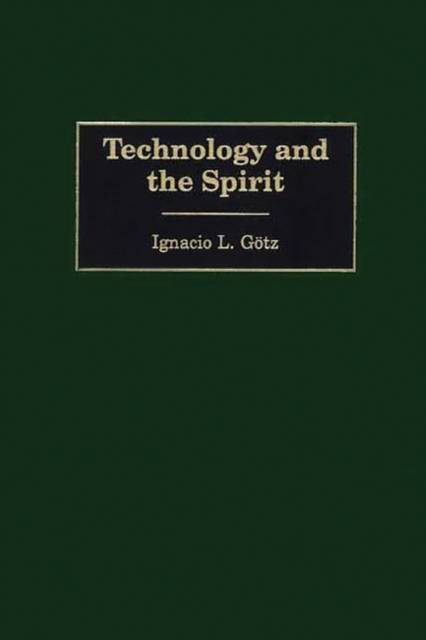
- Retrait gratuit dans votre magasin Club
- 7.000.000 titres dans notre catalogue
- Payer en toute sécurité
- Toujours un magasin près de chez vous
- Retrait gratuit dans votre magasin Club
- 7.000.0000 titres dans notre catalogue
- Payer en toute sécurité
- Toujours un magasin près de chez vous
Description
Most contemporary accounts of the role of technology in world culture are alarmist and, at times, condemn many uses of technology without much effort to get beyond the surface of this worldwide phenomenon. Technological innovations that might rightly be critiqued are taken as representative of the entire field of technology. On the other hand, there are those, including some scientists, for whom technology and its uses pose no questions at all and who seem to delight in predictions of a future totally dominated by technology. They prey on the human delight in newness and innovation and on our readiness to be surprised by what may someday come to be. Götz takes the position that so-called technology problems are really our problems, not the fault of technology.
Technology is an integral part of what we are as human beings, a significant aspect of our evolution. Götz also advances the thesis that technology may be viewed from the perspective of the human capacity to grow, and that when we do so, we are, in effect, spiritualizing technology and rendering it more meaningful to ourselves. Götz suggests several models that may be employed to achieve this spiritualization. This provocative analysis will be of interest to general readers as well as scholars, students, and researchers concerned with contemporary social and religious issues.Spécifications
Parties prenantes
- Auteur(s) :
- Editeur:
Contenu
- Nombre de pages :
- 160
- Langue:
- Anglais
Caractéristiques
- EAN:
- 9780275973469
- Date de parution :
- 30-08-01
- Format:
- Livre relié
- Format numérique:
- Genaaid
- Dimensions :
- 154 mm x 241 mm
- Poids :
- 421 g

Les avis
Nous publions uniquement les avis qui respectent les conditions requises. Consultez nos conditions pour les avis.






